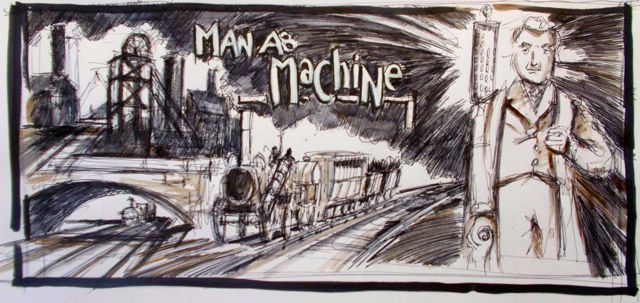George Stephenson a Lunatic? Perhaps Stephenson “shot himself in the foot”. Tarquin O’Flaherty explains.
An important point here, one I should have perhaps made earlier, was that right from the outset it was intended that this new railway would carry passengers. This is why the committee is so concerned about speed and safety. The truth doesn’t matter here. What matters here is the public’s perception of the truth, their belief that trains will shake themselves to pieces if they travel too quickly. They needed to be reassured on these points and George Stephenson really wasn’t helping.
George continued down this disastrous path when his technical competence was called in to question. When asked how wide a river was, or how many arches would support his proposed bridge over that river his answers were so vague as to provoke derision. It is impossible to know at this distance why Stephenson went before this committee so ill-prepared. He appeared not to know where his base line for the levels was drawn, and when a Mr William Cubitt was asked, (Cubitt had been hired to independently check the quoted levels) he was forced to say that a great deal of Stephenson’s levels were wrong.
This level of questioning went on for days, driven by the opposition’s need to destroy forever the possibility of the railway being built. In George Stephenson they found the perfect foil. It would appear that he had hired others to carry out some work on the levels, and it was this incompetent work that the opposition had seized on. This work had been less than careful. Not only that; the work had not once been checked for accuracy.
And then there was Chat Moss. Everybody knew that Chat Moss was a four mile long bottomless swamp that had been swallowing horses and houses for centuries. Yet Stephenson proposed ‘floating’ a railway across it by means of man-made islands. The opposition seized on this ‘island’ notion as another indicator of Stephenson’s unhinged thinking, and they set about making him a laughing stock, a person wholly unfit to deal responsibly with the huge sums of money this enterprise required. Stephenson, humiliated, had no answers, at least none the committee required. He was not a performer. He was an engineer. To get a bill through parliament needed sophistication. George had none and the bill was lost. To add to his miseries the Liverpool-Manchester board was forced to sack him. They promptly set about finding a replacement.
TO BE CONTINUED

